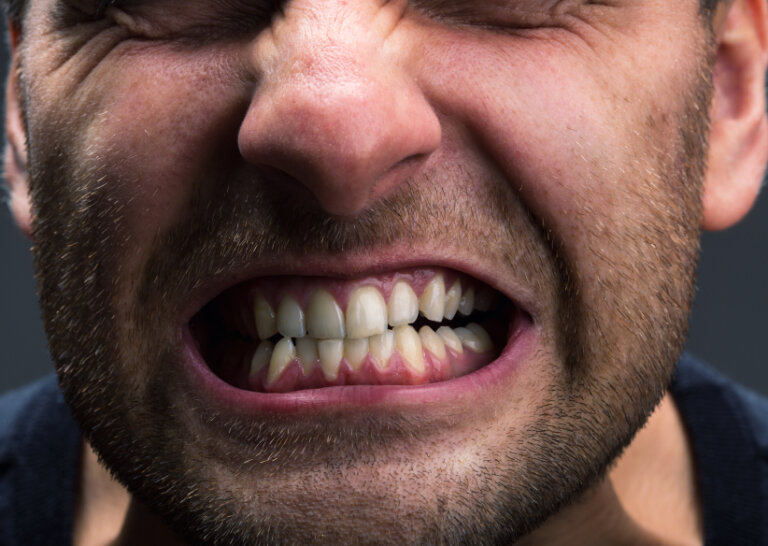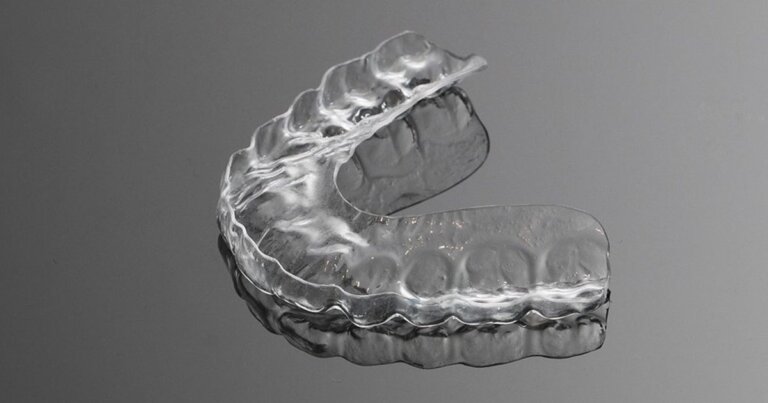Dentists see more teeth grinding pandemic stress in patients

What Is Bruxism?
Bruxism, or teeth grinding, involves the involuntary grinding, clenching, or gnashing of teeth. It can occur while awake (awake bruxism) or during sleep (sleep bruxism), with the latter considered a sleep-related movement disorder. Sleep bruxism is also commonly linked to other sleep disorders, such as snoring and sleep apnea.
The severity of bruxism can vary; mild cases might not require treatment, while frequent or intense grinding can lead to jaw disorders, headaches, tooth damage, and more. Grinding teeth at high force and frequency can cause teeth to crack, chip, or loosen. It also puts stress on the jaw joint, leading to Temporomandibular Joint Disorder (TMD), and can cause jaw muscle soreness.
Being unaware of sleep bruxism is common until it results in complications, which is why it’s important to recognize bruxism symptoms and maintain regular dental checkups.
COVID-19 Anxiety Linked to Teeth Grinding
Are pandemic-related stress and anxiety taking a toll on your teeth? Many people have experienced increased levels of stress due to COVID-19, leading to symptoms like teeth grinding, jaw clenching, tooth sensitivity, and even toothaches. Dentists report a significant uptick in patients with cracked or damaged teeth over the past few years, linking this to stress-induced teeth grinding or “bruxism.”
According to the American Dental Association’s 2021 survey, over 70% of dentists noticed more patients exhibiting teeth grinding or clenching, behaviors often associated with high stress levels.
Common Symptoms of Teeth Grinding
Symptoms of bruxism include:
- Loud grinding sounds during sleep
- Flattened, fractured, or chipped teeth
- Loose or misaligned teeth
- Worn tooth enamel and sensitive teeth
- Jaw pain, tightness, or a locked jaw
- Facial pain or headaches starting in the temples
- Sleep disturbances, often linked to sleep apnea
- Jaw joint discomfort or clicking sounds
If you notice any of these symptoms, it’s wise to consult your dentist. At Atlas Dental, we can assess and help manage bruxism. Contact us to schedule a consultation.
Custom Night Guards: Effective Treatment for Bruxism
A custom-fitted dental night guard is often the first line of defense against bruxism. Made specifically to fit your mouth, a night guard provides a protective cushion, reducing tooth wear from grinding.
Custom night guards are highly recommended over generic over-the-counter options. At Atlas Dental, we create comfortable, personalized night guards using advanced 3D scanning and 3D printing technology. This precision fit not only protects your teeth but also feels much more natural to wear.

Cost of Night Guard
Our Dental Night Guards cost $609. The codes relevant to night guards in the Ontario Dental Association’s Suggested Fee Guide appear as follows:
- 14611 – Maxillary Appliance: $409 + Dental Lab Fee ($200)
- 14612 – Mandibular Appliance: $409 + Dental Lab Fee ($200)
Night Guards are considered a basic service under all dental insurance plans and should be covered to your maximum insurable limit, but be sure to find out from your dental insurance plan provider how much you are eligible for before going ahead with dental treatment. Our fees are consistent with the ODA Fee Guide.
The Process of Getting a Custom Dental Night Guard
The process of getting a night guard at Atlas Dental involves two quick appointments:
- First Appointment: A 3D computer scan of your mouth is taken in minutes, with no uncomfortable impressions.
- Custom Fabrication: Using your scan, a 3D model is printed, creating a precise, biocompatible guard that fits your teeth perfectly.
- Second Appointment: You’ll try on the night guard for final adjustments.
Patients with severe bruxism can also opt for an acrylic hard guard. Your dentist will also assess any vulnerable teeth, such as those with large fillings or root canal treatments, and may suggest a dental crown to add strength and protection.
Coping with Pandemic Stress
The pandemic has brought many changes, resulting in widespread stress and anxiety. While a night guard can prevent dental damage, it’s equally essential to address the underlying stress. Consider incorporating these self-care tips:
- Physical Wellness: Prioritize sleep, engage in regular physical activity, and eat balanced meals. Limit caffeine and avoid tobacco, alcohol, and drugs.
- Mental Health: Maintain a routine, reduce screen time, limit news exposure, and focus on positive activities.
- Social Connections: Stay connected through virtual gatherings, and help those around you, especially vulnerable family or friends.
If you feel overwhelmed, seeking support from loved ones, a healthcare provider, or a counselor can also help alleviate stress.

Frequently Asked Questions About Night Guards
- Can I wear a night guard if I’m pregnant?
Yes, night guards are generally safe during pregnancy. Discuss with your dentist to ensure materials are suitable and align with your needs.
- How long does a night guard last?
With proper care, a night guard can last 1–5 years. Factors like material type, grinding severity, and maintenance impact longevity.
- Are over-the-counter night guards effective?
While convenient, they lack the fit and durability of custom guards. A poorly fitting guard can cause additional issues.
- How do I clean my night guard?
Rinse with lukewarm water and use a soft toothbrush. Avoid hot water or abrasive cleaners to maintain its integrity.
Atlas Dental uses state-of-the-art 3D scanning and printing to create night guards tailored to your needs. Contact us for a free consultation or book an appointment online.

